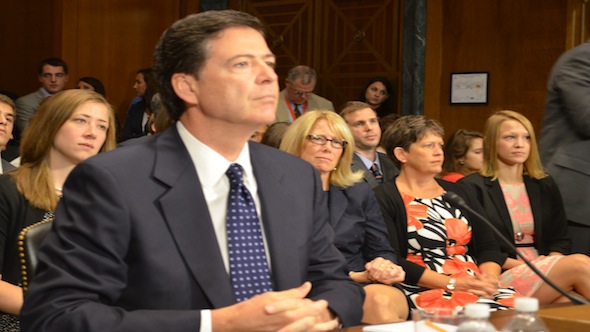
FBI Director nominee James Comey defends his position on the use of waterboarding in interrogations.
WASHINGTON — FBI Director nominee James Comey Tuesday defended his position on the use of waterboarding in interrogations, saying he’s always been against it despite a position paper that critics say shows some support.
Testifying before the Senate Judiciary Committee, Comey said in response to a question from Committee Chairman Sen. Patrick Leahy, D-Vt., that he agreed that waterboarding was both torture and illegal.
He said he approved a Justice Department memo as deputy attorney general at the Justice Department in the George W. Bush administration that allowed certain “enhanced interrogation techniques,” but insisted the law was “very vague” about techniques were covered. He also said that he did his best to block it.
“I made that argument as forcefully as I could to the attorney general,” Comey said. “He actually literally took my notes with him to a meeting at the White House and told me he made my argument in full, and that the principals were fully on-board with the policy. And so my argument was rejected.”
He listed three measures in assessing such techniques: First, do they work? Second, are they legal? And third, should we be doing them.
“The White House’s view was that only the first two questions mattered,” Comey said.
Come also was questioned on the current controversy over the National Security Administration’s collection of millions of phone records of Americans as part of its anti-terrorism efforts. Comey said he supported the data collection as a counterterrorism effort, but could not comment on the specific programs disclosed recently by former NSA contractor Edward Snowden because he was working private sector at the time.
Comey was quick to defend the Foreign Intelligence Surveillance Act courts for only rarely denying government requests for surveillance. He said that the courts do not “operate in a vacuum” and are subject to judicial and congressional oversight.
When pressed on the matter by Sen. Charles Schumer, D-N,Y., Comey said that government officials were “extremely conservative” in requesting secret surveillance authority and their requests have been denied so infrequently because if there was a problem judges will suggest modifications.
